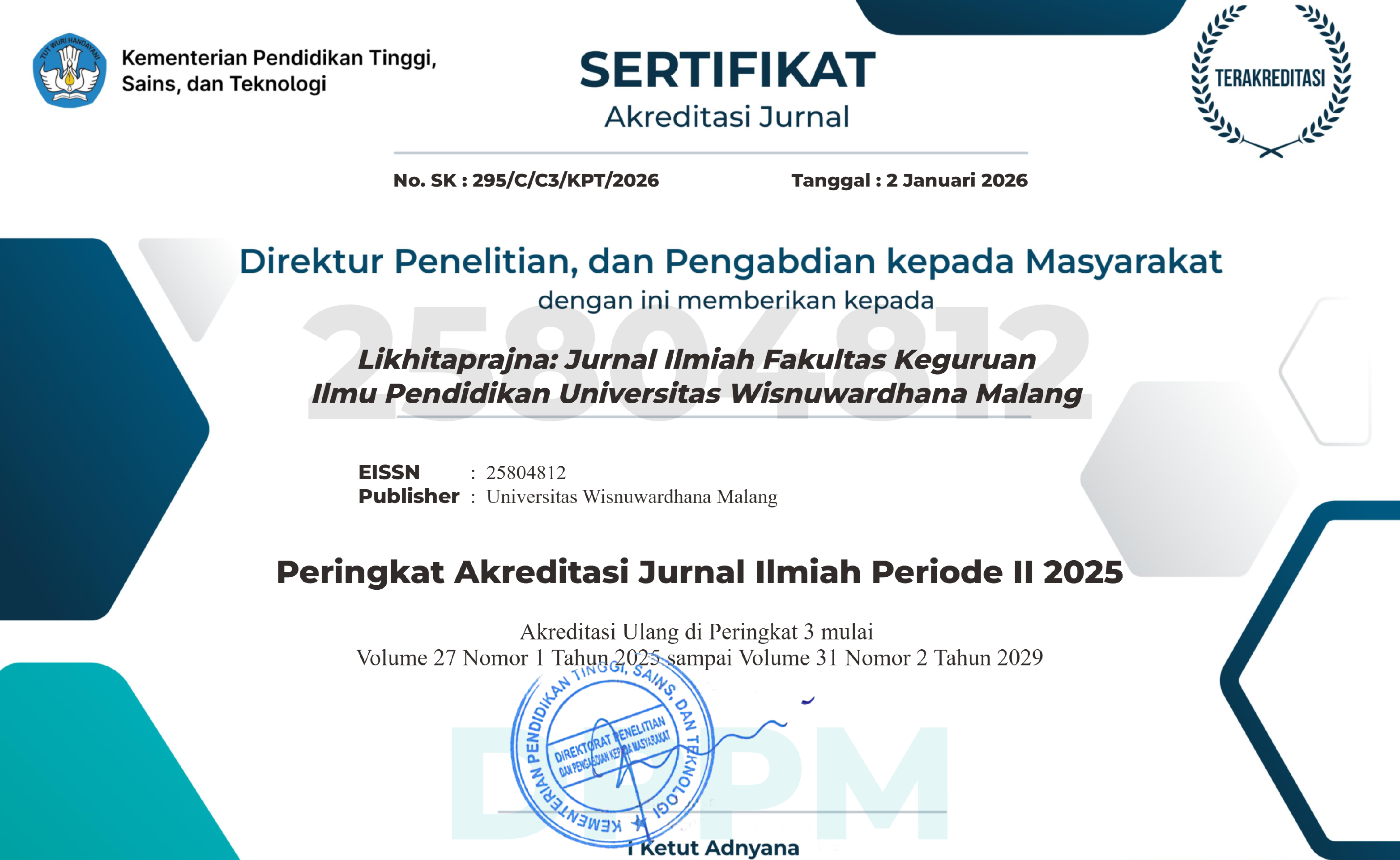MANAJEMEN PENGELOLAAN KELAS MELALUI JOYFUL LEARNING
Abstract
Joyful learning is learning strategy that can be applied by teachers in creating fun learning while stimulating the creativity of students in learning. Based on observations, there are still many learning processes in the class that are packaged less attractive to students, so joyful learning can be an alternative in the application of classroom learning. This study aims to determine the application of joyful learning in increasing motivation and learning outcomes. Data obtained from the value of learning outcomes as well as data carried out verbally, so that this study is classified as quantitative descriptive research. In this study, some forms of joyful learning developed include teaching material concepts presented in the form of poetry and songs. At the end of the learning activities students were also asked to pour their creativity to make material concepts in the form of poetry and songs. So that by implementing fun learning, motivation and learning outcomes can be improved.
References
Children, Y. (2010, May). Joyful Learning and Assessment in Kindergarten May. NAEYC, pp. 57–59. Retrieved from https://www.mentalhealthexcellence.org/wp-content/uploads/2013/10/Joyful-Learning.pdf
Depdiknas. (2003). Undang-Undang Republik Indonesia No. 20 Tahun 2003 tentang Sistem Pendidikan Nasional. Jakarta: Depdiknas.
Depdiknas. (2005). Peraturan Pemerintah Republik Indonesia No. 19 Tahun 2005 tentang Standar Nasional Pendidikan. Jakarta: Depdiknas.
Ginnis, P. (2008). Trik & Taktik Mengajar Strategi Meningkatkan Pencapaian Pengajaran di Kelas. Jakarta: Pt. Indeks.
Hernowo. (2005). Quantum Reading: Cara Cepat nan Bermanfaat untuk Merangsang Munculnya Potensi Membaca. Bandung: Mizan Learning Center.
Rukmana, A. (2012). Penelitian Tindakan Kelas (PTK) sebuah Alternatif Peningkatan Profesionalisme Guru. Bandung: Remaja Rosdakarya.
Safri, H. (2005). Tertawa Itu Sehat. Yogyakarta: Pustaka Pelajar.
Sanjaya, W. (2016). Strategi Pembelajaran Berorientasi Standar Proses Pendidikan. Jakarta: Kencana Prenada Media Grup.
Sardiman, A. . (2007). Interaksi dan Motivasi Belajar Mengajar. Jakarta: Raja Grafindo Persada.
Syah, M. (2010). Psikologi Pendidikan dengan Pendekatan Baru. Bandung: Remaja Rosdakarya.
World, N. (2013). EYFS Best Practice: All about Joyful Learning. MA Education, pp. 23–27. Retrieved from https://www.nurseryworld.co.uk/features/article/eyfs-best-practice-all-about-joyful-learning
Penulis yang menerbitkan karya ilmiahnya di Likhitaprajna setuju dengan ketentuan berikut: manuskrip yang diajukan dan dipublikasikan tetap menjadi hak publikasi penulis dengan karya yang dilisensikan secara bersamaan di bawah Lisensi Internasional Creative Commons Attribution-ShareAlike 4.0.
This work is licensed under a Creative Commons Attribution-ShareAlike 4.0 International License.



